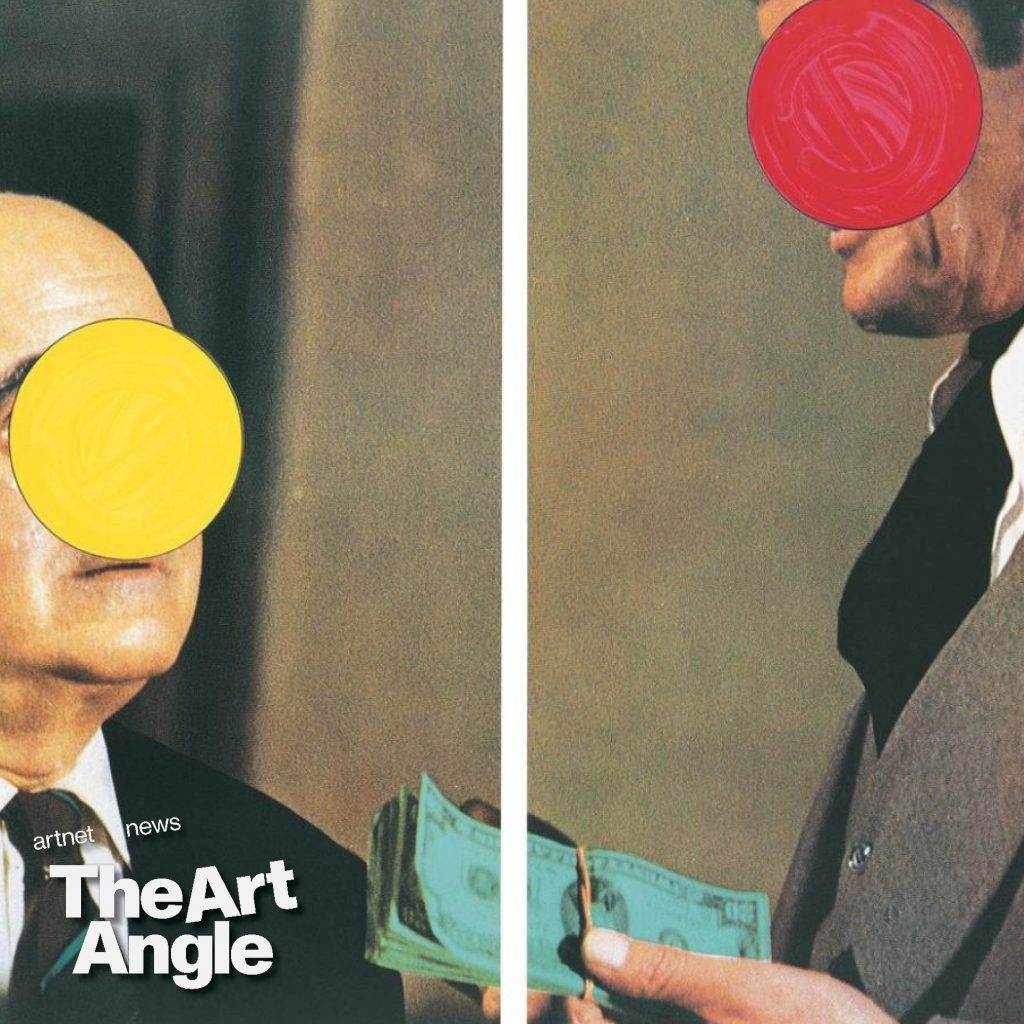The Art Angle
The Art Angle Podcast: Can Artists Ever Beat Flippers at Their Own Game?
A gallerist, an artist, and an entrepreneur discuss.

A gallerist, an artist, and an entrepreneur discuss.

Artnet News

Welcome to the Art Angle, a podcast from Artnet News that delves into the places where the art world meets the real world, bringing each week’s biggest story down to earth. Join us every week for an in-depth look at what matters most in museums, the art market, and much more, with input from our own writers and editors, as well as artists, curators, and other top experts in the field.
“Flipping” was once a dirty word in the art market. But that is no longer the case. Over the past decade, speculative reselling has become big business as the market for ultra-contemporary art has soared. Sales of art sold within three years of its creation date have grown 1,000 percent over the past decade, to almost $260 million. (For context, over the same period, the S&P 500 rose just about 200 percent.)
Historically, only collectors have been able to benefit from this practice—not artists or their dealers. In the U.K. and France, artists receive a small resale royalty when their work is resold at auction. In the U.S., they get nothing.
That’s why, over the past few years, artists, gallerists, and entrepreneurs have started to take matters into their own hands, engineering new ways to either stamp out flippers or create systems so that artists can benefit more directly when their work is resold for a big profit.
This shift is the subject of our fall 2022 Artnet News Pro Intelligence Report. Ahead of the report’s release, we gathered together an expert panel at Cromwell Place in London during Frieze moderated by our own executive editor Julia Halperin.
We spoke with Max Kendrick, co-founder and CEO of Fairchain, a company that is using the blockchain to create new ways of conducting art sales; Rachel Uffner, owner and director of Rachel Uffner Gallery in New York; and Lucien Smith, an artist and director of the Cultural Innovations Lab at the art management platform Lobus.
As you’ll see, there is little consensus about what to do about flipping. If you want to learn more, subscribe to Artnet News Pro for the full Artnet News Intelligence Report, out soon. Without further ado, here’s Julia and the panel.
Listen to more episodes:
The Art Angle Podcast: Can Art Basel Make Paris the World’s Art Capital Once Again?
The Art Angle Podcast: Why the Art World Is Such a Hard Place to Be a Parent
The Art Angle Podcast: ‘Hope’ Poster Artist Shepard Fairey on Art and Activism Today
The Art Angle Podcast: How the Universe Taught Wolfgang Tillmans to Make Art
The Art Angle Podcast: Rick Lowe on How Art Can Solve Real-World Problems
The Art Angle Podcast: How K-Pop and Connoisseurship Made Seoul a New Art Capital
The Art Angle Podcast: How the Art World in Ukraine’s Besieged Capital Is Fighting Back [Re-Air]
The Art Angle Podcast: How Virgil Abloh Changed the Contemporary Art World